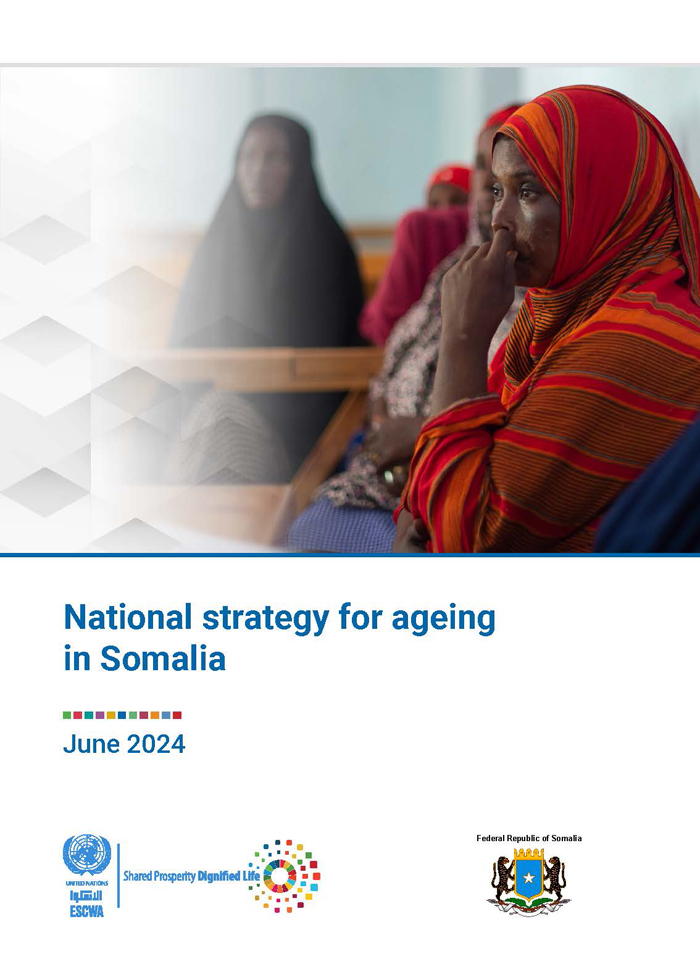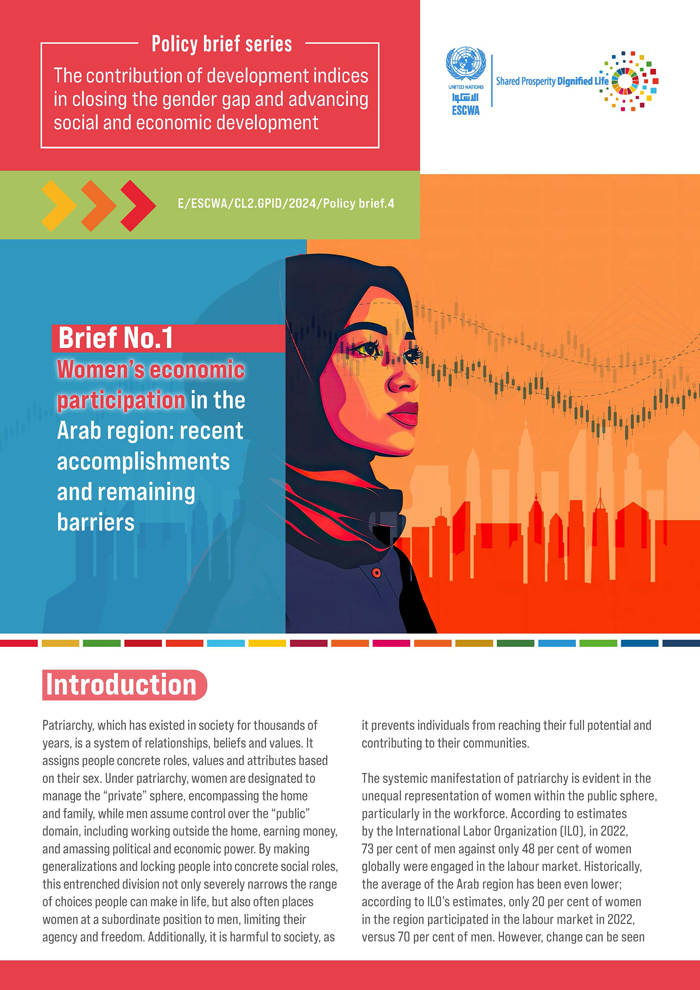
ESCWA Publication: E/ESCWA/EDID/2019/CP.2
Country: State of Palestine
Publication Type: Reports & studies
Cluster: Shared Economic Prosperity
Focus Area: Financing for development, Inclusive development
Initiatives: Support to the Palestinian people
SDGs: Goal 8: Decent Work and Economic Growth
Keywords: Employment, Employment creation, Productivity
Country Profile on Employment and Decent Work: Palestine
January 2019
The United Nations Sustainable Development Goals (SDGs) primarily address the essential components of achieving a better path of equitable economic growth, providing proper and equal education, equality between gender and good physiological and material wellbeing in several dimensions.
Sustainable Development Goal 8 aims at promoting inclusive and sustainable economic growth, full and productive employment, and decent work for all. Several targets underlie these aims: sustained economic growth (8.1), high levels of economic productivity (8.2), promotion of productive activities (8.3), full productive employment and decent work for all (8.5), reduced number of youth not in employment, education or training (8.6), the eradication of forced labor, human trafficking and the worst forms of child labor (8.7). In this country profile we provide a trend analysis of key indicators of productivity and decent employment among different demographic segments of the Palestinian population in the occupied Palestinian territory. We examine indicators and identify the main challenges related to goal 8 of the SDGs and to other relevant SDG goals (such as gender equality and quality education) to assess whether Palestine is on track to meet its inclusive work and productivity targets in accordance with Agenda 2030.
This employment profile could help policy makers and government officials to understand the key trends in the occupied Palestinian territory’s labour market and prioritise policy choices to improve employment and productivity prospects. In this employment profile, we primarily use statistics and definitions from the World Bank and the International Labor Organization. However, in some cases where important disaggregation were not available from international sources, national statistics data were used. This country profile aims at triggering a policy debate on how to achieve decent employment in the Arab region and to provide an informative basis for future policy research.
Related content
Financing for development
, Inclusive development
,
The United Nations Sustainable Development Goals (SDGs) primarily address the essential components of achieving a better path of equitable economic growth, providing proper and equal education, equality between gender and good physiological and material wellbeing in several dimensions.
Sustainable Development Goal 8 aims at promoting inclusive and sustainable economic growth, full and productive employment, and decent work for all. Several targets underlie these aims: sustained economic growth (8.1), high levels of economic productivity (8.2), promotion of productive activities (8.3), full productive employment and decent work for all (8.5), reduced number of youth not in employment, education or training (8.6), the eradication of forced labor, human trafficking and the worst forms of child labor (8.7). In this country profile we provide a trend analysis of key indicators of productivity and decent employment among different demographic segments of the Palestinian population in the occupied Palestinian territory. We examine indicators and identify the main challenges related to goal 8 of the SDGs and to other relevant SDG goals (such as gender equality and quality education) to assess whether Palestine is on track to meet its inclusive work and productivity targets in accordance with Agenda 2030.
This employment profile could help policy makers and government officials to understand the key trends in the occupied Palestinian territory’s labour market and prioritise policy choices to improve employment and productivity prospects. In this employment profile, we primarily use statistics and definitions from the World Bank and the International Labor Organization. However, in some cases where important disaggregation were not available from international sources, national statistics data were used. This country profile aims at triggering a policy debate on how to achieve decent employment in the Arab region and to provide an informative basis for future policy research.



